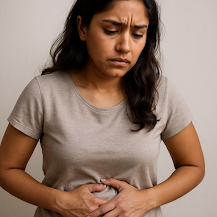What is the Remedy for Ovarian Hyperstimulation?
Ovarian Hyperstimulation Syndrome, commonly known as OHSS syndrome,it is a medical condition that sometimes occurs in women undergoing fertility treatments, especially during In Vitro Fertilization (IVF) or ovulation induction procedures. While mild cases of OHSS resolve on their own, moderate to severe cases require timely and targeted medical intervention to prevent serious complications. In this blog, we’ll explore the most effective remedies for OHSS and how to manage this condition safely.
What is OHSS Syndrome
OHSS syndrome is an exaggerated response to excess hormones, particularly human chorionic gonadotropin (hCG), which is administered to trigger ovulation. In OHSS, the ovaries become swollen and painful, and fluid may leak into the abdomen and chest, causing bloating, nausea, and discomfort.
Common Symptoms of OHSS:
Abdominal bloating
Nausea and vomiting
Sudden weight gain
Decreased urination
Shortness of breath
Enlarged ovaries
Mild OHSS is quite common and usually resolves without treatment. However, moderate to severe forms may lead to dehydration, electrolyte imbalance, and in rare cases, blood clots or kidney issues. That’s why understanding the remedies and timely management is crucial.
Remedies for OHSS Syndrome
Ovarian Hyperstimulation Syndrome (OHSS) does not have a one-size-fits-all cure. Instead, treatment focuses on easing symptoms, preventing complications, and supporting recovery. The approach depends on the severity of the condition—while mild forms often improve on their own, moderate to severe cases may need hospital-based care and continuous monitoring.
Supportive Treatments for OHSS Syndrome
Medical management of OHSS syndrome is tailored to stabilize the patient, manage discomfort, and prevent further complications. Here’s a breakdown of commonly recommended treatments:
1. Fluid and Electrolyte Balance
Maintaining hydration is one of the most critical aspects of managing OHSS. According to the Mayo Clinic, patients may require intravenous (IV) fluids to restore electrolyte levels and avoid dehydration, especially when oral intake is insufficient due to nausea or bloating. Regular monitoring ensures that fluid does not accumulate excessively in body cavities like the abdomen or chest.a
2. Pain Management
For women experiencing abdominal pain or pelvic discomfort, acetaminophen (paracetamol) is typically advised as a safe, over-the-counter pain reliever. Non-steroidal anti-inflammatory drugs (NSAIDs) are generally avoided due to their potential impact on kidney function and fertility treatment outcomes.
3. Anti-Nausea Medications
Nausea and vomiting can be persistent in OHSS. To ensure the patient can eat and stay hydrated, doctors may prescribe antiemetics, which are medications designed to reduce nausea and improve overall comfort.
4. Medications to Reduce Ovarian Activity
In moderate to severe cases, medications like cabergoline (a dopamine agonist) or GnRH antagonists may be prescribed. These drugs help suppress the overstimulated ovaries and reduce the production of vascular endothelial growth factor (VEGF), which is responsible for increased fluid leakage into the abdomen.
5. Blood Clot Prevention (Thromboprophylaxis)
One of the serious risks of OHSS is the development of blood clots due to dehydration and reduced mobility. To prevent this, doctors may administer low-dose anticoagulants like heparin. This is especially important for patients with limited movement or severe symptoms requiring bed rest.
6. Paracentesis (Fluid Drainage)
When fluid buildup in the abdominal cavity becomes too uncomfortable or begins to affect breathing, a procedure called paracentesis may be performed. It involves using a fine needle to drain excess fluid from the abdomen, offering significant relief.
7. Surgical Intervention
Although extremely rare cases, surgery may be required in life-threatening cases where there is internal bleeding, ovarian torsion, or no improvement with medical treatment. Surgical care is typically a last resort after all other conservative measures have failed.
Prevention Strategies for OHSS Syndrome
While treatment is available, preventing OHSS syndrome from developing in the first place is always the preferred approach, especially in high-risk women such as those with polycystic ovary syndrome (PCOS) or elevated AMH levels.
1. Low-Dose Aspirin
The American Society for Reproductive Medicine (ASRM) suggests that low-dose aspirin may help reduce the risk of OHSS by improving blood flow and decreasing the chances of blood clot formation during fertility treatments.
2. Dopamine Agonists
Medications like cabergoline not only help in managing OHSS but can also be used prophylactically to reduce the chance of its development in women identified as high-risk during ovarian stimulation.
3. Metformin for PCOS Patients
For women with PCOS, metformin may be prescribed as part of their fertility treatment plan. It helps improve insulin sensitivity, which in turn may reduce ovarian response and lower the chances of developing OHSS.
4. Lifestyle and Activity Adjustments
Simple but effective, resting adequately, staying well-hydrated, and avoiding intense physical activities can prevent symptom worsening. These lifestyle modifications are particularly useful when early signs of OHSS begin to appear.
Important Considerations
- Mild OHSS cases often require no medical treatment and resolve within a week or two after ovulation or egg retrieval
- Severity can change quickly, especially if pregnancy occurs after embryo transfer, as hCG levels rise and can aggravate the condition.
- Ongoing medical supervision is essential, even in milder forms, to ensure early detection of any worsening symptoms.
- If you are undergoing fertility treatments and notice unusual symptoms such as rapid weight gain, difficulty breathing, or abdominal pain, don’t wait, get in touch with your doctor immediately.






.jpg)


Comments
Post a Comment